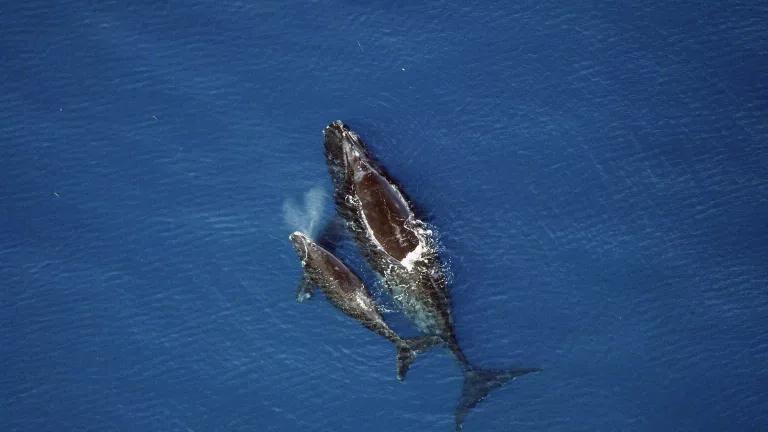NRDC Seeks to Intervene in Industry Appeal of Seismic Denial

NRDC and its partners are pushing back against the offshore industry’s latest bid to open the east coast to oil and gas development.
At issue are six highly controversial permits that the Bureau of Ocean Energy Management (BOEM), the federal agency that regulates offshore oil and gas, denied in January. If granted, the permits would have allowed industry to crisscross the mid-Atlantic and southeast coasts with seismic airguns, blasting the water in search of oil and gas deposits. The scientific community warned of “significant, long-lasting, and widespread” harm to fish and marine mammal populations should the surveys have been allowed to proceed. Now industry is attempting to overturn the permit denials by appealing to the Interior Department’s Board of Land Appeals. We asked the Board today for permission to intervene in those cases.
Seismic blasting is both a direct precursor to offshore drilling and a serious environmental incursion in its own right. It involves trolling the ocean with arrays of high-volume airguns, whose blasts—as acoustically powerful as explosions—pound the water every ten seconds or so for weeks and months on end. As I’ve written before, this activity is known to silence great whales over vast stretches of ocean, to displace fish (and disrupt fisheries) over areas the size of small states, and to generally compromise the world of sound that countless marine species depend on for survival. And the extent of activity proposed for the east coast is enormous, amounting to more than 78,000 miles of surveys in the first year alone.
Crucially, in denying the permits, BOEM was concerned about the impacts that seismic blasting would have on marine life. “Deep-penetration seismic airgun surveys come with an environmental burden,” the agency said. It called attention to the potential for hearing damage and biologically significant disruptions in behavior, and concluded that the potential harm “is not worth the risk.”
BOEM was “particularly persuaded by the continually emerging science regarding the North Atlantic right whale”—an endangered and iconic species that spends much of its time migrating and calving in the same waters targeted by industry. A century ago, the right whale was hunted nearly to extinction; now it is struggling for survival once again, with fewer than 500 individuals remaining and the population in apparent decline. For the whales, seismic blasting would be a major stressor and a source of widespread disruption—a threat to their ability to communicate, to breed, to maintain bonds between mothers and calves. A group of twenty-eight right whale experts informed President Obama last April that introducing seismic surveys to the east coast “may well represent a tipping point for the survival of this endangered whale, contributing significantly to a decline towards extinction.”
Under the law, BOEM, in issuing permits, must first find that the seismic surveys will not be “unduly harmful to aquatic life.” Considering the plight of the right whale, it is difficult to imagine any reasonable regulator reaching a different conclusion than the one the agency reached in January.
As I noted on Friday in response to President Trump’s destructive Executive Order on offshore oil and gas, seismic blasting in the Atlantic has met with wide public opposition. More than 100 municipalities from New Jersey to Florida have adopted resolutions rejecting it; more than 35,000 local businesses and business organizations are allied against it. The region’s two Fisheries Management Councils have repeatedly objected to it, as have numerous fishers’ associations up and down the coast. In the community, as on Capitol Hill, the opposition is truly bipartisan.
In seeking to intervene in this industry effort to revive the six permits, we mean to ensure that the concerns of the public and of the scientific community are heard.
